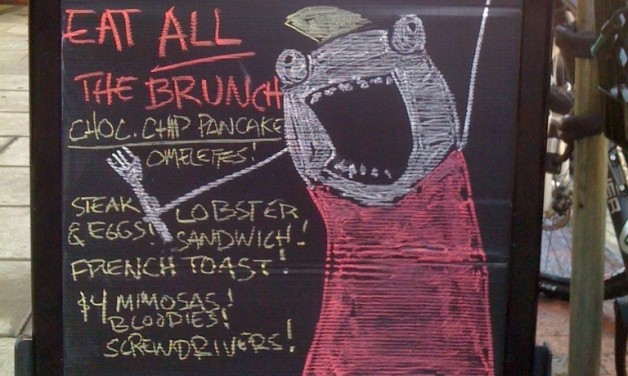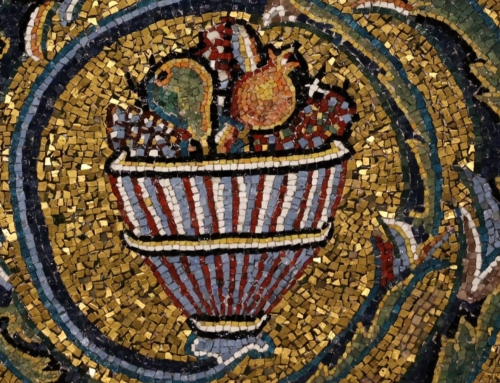brunch – noun \ˈbrənch\ : the midday-ish meal of Sunday morning (“brunch” being a portmanteau made of the words “breakfast” and “lunch”), accompanied by coffee, etc., wherein the events of Saturday evening are recapped among friends, and which typically concludes with a slice of cantaloupe or some such.
There’s just something religious about brunch, not only at the Dominican House of Studies, where brunch is a regular part of the community’s Sunday schedule, but more generally speaking. I’m not talking merely about the transcendent experience of consuming bacon—although that may well play into the analogy, pace vegetarians—I’m thinking more the “ceremonial” aspects of brunch. For example, people become very attached to their favorite brunching establishment, much like they are to their own parish church. They have a favorite server (she may even know your drink!), like a priest whose preaching they prefer, and the fiercest brunchers often occupy the same table—like that one family who always sits in the exact same pew. Brunch could take place on Saturday, but everyone knows that’s only a poor imitation of actual Sunday brunch. Brunch has a certain observance about it, a kind of ritual.
Before the legalization of Christianity in the Roman Empire, Sunday meant nothing. It wasn’t until the official (that is, legal) and cultural innovations of Emperor Constantine that judges were ordered to cease hearing cases on Sundays and citizens were instructed not to work. Sunday, the day of the Resurrection of Jesus Christ from the dead, took on new meaning, a meaning which transformed Roman society with a weekly day of rest. Brunch, inasmuch as it remains a Sunday phenomena, redounds with the echo of the introduction of Christianity to a pagan world.
Brunch is also a communal affair. In my family, because of the fast before Mass, we would return home from St. Charles starving (okay, well we weren’t starving, but it sure felt like it). Brunch meant that we gathered for some family time, for Dad’s biscuits and gravy, Mom’s amazing sour cream waffles or the like…the point is we were together. Insofar as brunch requires the assembly of a community (i.e., yo’ friends!), brunch recalls the meeting of the Christian community, which assembles to offer songs of praise and thanksgiving and the worship that is the Holy Sacrifice of the Mass.
Conversation is another key part of brunch. Whatever took place over the course of the weekend simply must be rehashed and otherwise revisited. In the family setting, it’s when we catch up on what the cousins or others have been up to. At some point though, the conversation fades. There comes a moment when it feels like everything has been discussed (this usually coincides with the comatose feeling of having consumed an enormous breakfast). As often as I’ve felt totally sated after a fantastic brunch, the fact remains that several hours later I’ll be hungry again (and even if I’m not, I’ll snack while watching football).
Brunch then can be seen as one of those little signs that opens our finite perspective to the infinity of God. Not to be overly dramatic, but, in heaven we won’t run out of things to talk about. There will be no need to wait for tables or refills, and unlike those days when your family and friends can’t all make it, there won’t be anyone missing. Not only does brunch point us to the Christian calling of these present days (that is, the glories of the graces of the Mass and Sunday observance) but brunch can be considered a pledge—if only a tiny one—of the future glories of the beatific vision.
✠
Photo credit: Memphis CVB, All the brunch. Cropped from original.







